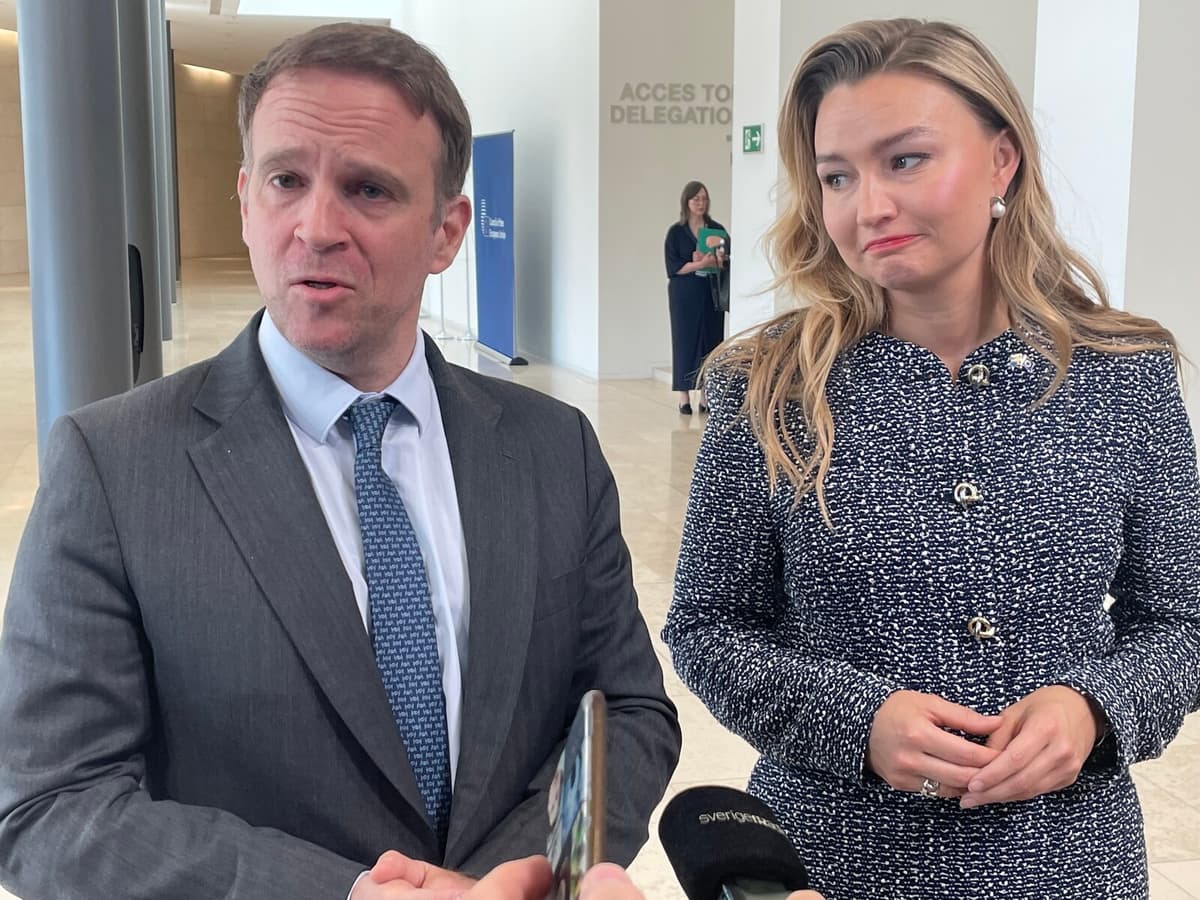All EU discussions about nuclear power have for several years been characterized by a deadlock between French oui and German nein, especially when it comes to EU support.
The war in Ukraine and the phasing out of energy from Russia have, however, created a new situation. And now, even Germany's Energy Minister Katherina Reiche has been present when colleagues in the EU's unofficial so-called "nuclear power alliance" held a breakfast meeting in Luxembourg.
–We now see more and more countries joining the nuclear power alliance because we need to unite all good forces – and then I mean forces both in the form of countries and energy sources, says meeting leader Ebba Busch at a joint press conference afterwards with her French colleague Marc Ferracci.
No obstacles?
Germany is, however, still not a member of the alliance and has also emphasized that it can only imagine EU support for new nuclear power technology, such as for small reactors.
Busch does not want to go into what Reiche said at the meeting, but still has great hopes for the future.
–I am glad that we have a German leadership now that advocates for renewable energy and respects that several countries will build new nuclear power and that is not out to put obstacles in the way of others, says the minister.
Phase out Russia
After the nuclear power meeting, the EU countries also held a regular energy minister meeting where the phasing out of Russian energy was mainly discussed.
However, Hungary and Slovakia are highly unwilling and refused on Monday to sign an appeal to the EU Commission to proceed with its plans.
”This jeopardizes our independence and energy security”, claims Hungary's Foreign Minister Péter Szijjártó in a statement on X.
The first concrete proposals in the Commission's plan are expected to be presented on Tuesday.
Wiktor Nummelin/TT
Fact: Nuclear power in the EU
TT
Currently, there are nuclear power plants in twelve EU countries: Sweden, Finland, Belgium, the Netherlands, the Czech Republic, Slovakia, France, Spain, Hungary, Slovenia, Romania, and Bulgaria. Of these, all except Spain are part of the unofficial so-called "nuclear power alliance". Members also include Croatia (which co-owns a nuclear power plant in Slovenia) and Italy (which closed its last nuclear power plant in 1990). Estonia and Poland are observers in the group. On the opposite side, traditionally mainly Germany (whose last nuclear power plant closed in 2023) has opposed all forms of EU support and investments in nuclear power, together with Denmark, Austria, Portugal, and Luxembourg.






